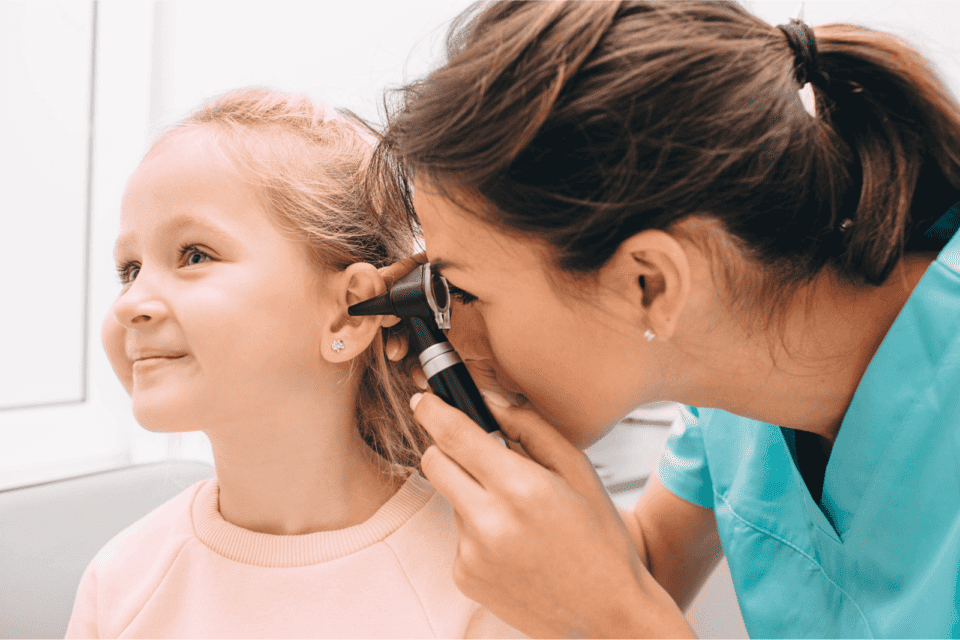You may be most familiar with age-related hearing loss or noise-induced hearing loss, but there are actually several types of hearing loss. Hearing loss can also be caused by noise exposure, infection, illness, or injury. Today, we’re delving into the intriguing world of genetics and how it’s linked to hearing loss.
Deciphering the Genetic Code
Let’s start by taking a moment to understand what genetics is all about. We’ve all heard of genes – those small segments of our DNA that dictate our traits. What’s remarkable is that genes also exert a profound influence on our hearing.
Hearing loss can be broadly categorized into two main types: congenital (present at birth) and acquired (developed over time). While acquired hearing loss is frequently linked to factors like aging or exposure to loud noise, it’s the genetic aspect that comes into play when we talk about congenital hearing loss.
Genetic Underpinnings of Congenital Hearing Loss
Recent research has unveiled a lot of information about the genes responsible for congenital hearing loss. These genes can be categorized into two primary groups:
- Syndromic Hearing Loss: In some instances, hearing loss isn’t the sole issue. In syndromic hearing loss, it is often accompanied by other medical conditions or abnormalities. Remarkably, over 400 genetic syndromes are known to feature hearing loss as one of their defining characteristics. For example, some people may experience both vision impairment and hearing loss.
- Non-Syndromic Hearing Loss: With non-syndromic hearing loss, changes in hearing is the primary concern. Research suggests that approximately 70% of congenital hearing loss cases fall into this category. Non-syndromic hearing loss can be further subdivided into autosomal dominant, autosomal recessive, and X-linked, depending on the inheritance pattern of the responsible genes.
Cracking the Inheritance Code
Now, let’s talk inheritance. How do these hearing loss genes pass from one generation to the next?
In autosomal dominant inheritance, if one parent carries a gene mutation for hearing loss, there’s a 50% chance it will be passed on to their child. With autosomal recessive inheritance, both parents must carry the gene mutation for their child to potentially inherit it. As for X-linked inheritance, the mutation occurs on the X chromosome and is typically passed from mothers to their sons.
Here’s the twist: not everyone who inherits these gene mutations will necessarily develop hearing loss. Genetics is a complex interplay between your DNA and environmental factors, so it’s not a guarantee of hearing loss.
Genetic Testing: A Window into Your Genetic Blueprint
In recent years, genetic testing has advanced significantly and plays a pivotal role in understanding your hearing health. If you have a family history of hearing loss or suspect a genetic connection, genetic testing can help identify potential gene mutations that are linked to hearing loss. This knowledge is invaluable for early intervention and personalized treatment plans.
For parents of children diagnosed with congenital hearing loss, genetic testing offers insights into the root cause, aiding in informed decisions regarding treatment options, such as cochlear implants or hearing aids.
The Significance of Early Intervention
The connection between genetics and hearing loss isn’t just about satisfying our curiosity; it’s about facilitating early intervention and tailored treatments. For infants born with congenital hearing loss, early intervention can make all the difference. Research has consistently shown that children who receive early intervention services, such as hearing aids or cochlear implants have improved academic performance, along with enhanced communication skills and quality of life.
Looking to the Future
The field of genetics is advancing at an astonishing pace. Recent research has uncovered new genes associated with hearing loss, paving the way for more precise diagnoses and treatment options. This means that the future holds promise for even more personalized and effective solutions for those with genetic hearing loss.
Visit Us for a Hearing Test
Understanding the interplay between genetics and hearing loss can be an important step when it comes to treating congenital hearing loss. Whether you’re a concerned parent, or you have hearing loss, we recommend regular hearing tests! Together, we can find out more about the cause of your hearing loss, find out what sounds you’re missing, and help you navigate through your journey to better hearing.

